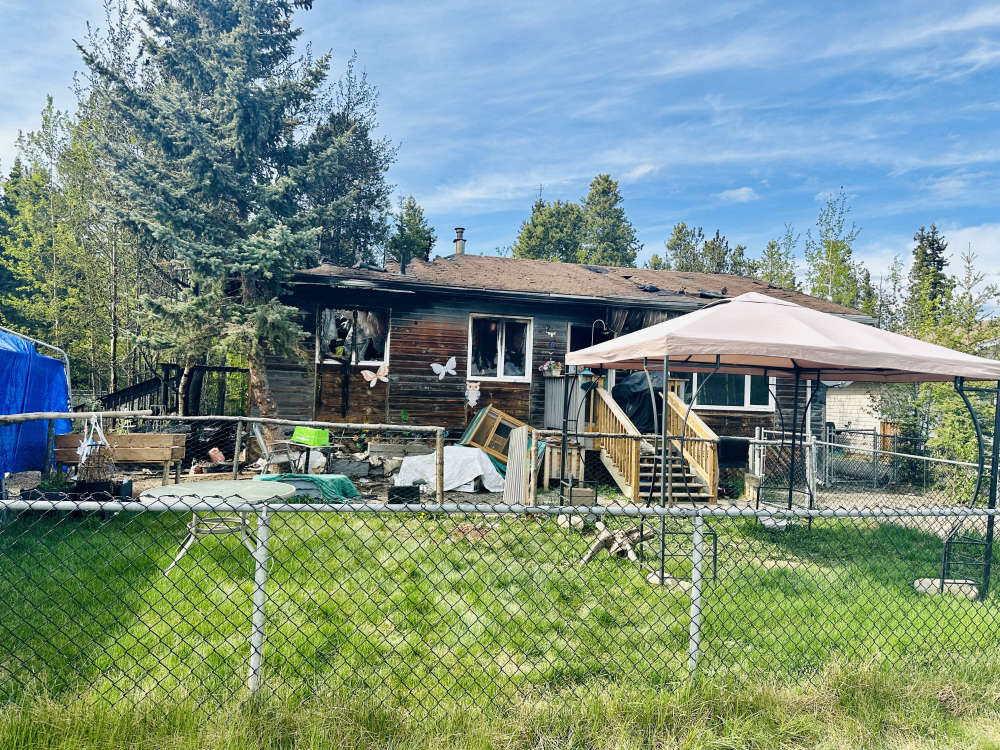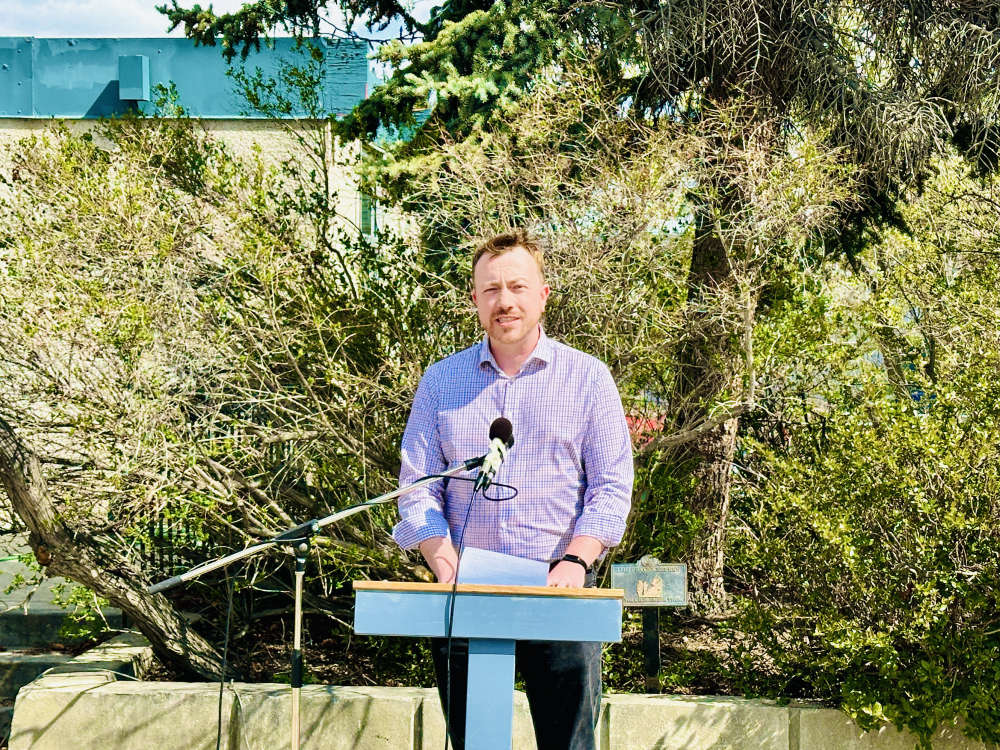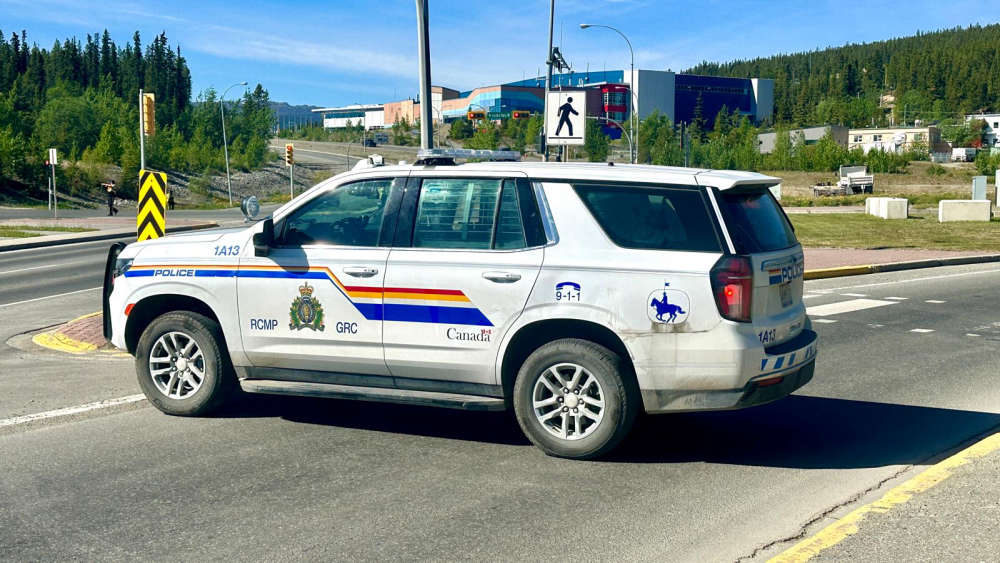
NDP Party Leader Liz Hanson says the current Liberal government needs to do more to address climate change in the Territory.
NDP Party Leader Liz Hanson says the current Liberal government needs to do more to address climate change in the Territory.
Hanson says the current utilities board isn't setting enough of a path forward for renewable energy generation in the Yukon.
"We have a utilities board that has basically said to Yukon Energy that you can't use demandside energy management as a way to lower your reliance on the current energy sources and increase our reliance on renewable energy. That would be something that the minister responsible could do through an Order and Council to change that direction. Ultimately, we want to see new legislation to the utilities board."
Hanson says she's ultimately disappointed with the current governments rollout of the carbon tax.
"We're concerned when we start talking about not being brave enough to talk about what carbon pricing actually is. It's supposed to be a way of making us less reliant on fossil fuels. Instead, what we've done in this territory, is skirted the issue of a carbon price because the government doesn't want to be seen as (someone) that's put a new tax on."
Hanson also says carbon tax exemptions shouldn't be made for the biggest polluters.
"They're calling it something that the federal government has made us do. Additionally, we're exempting already a whole range of sectors from paying fuel taxes and then we're giving them rebates. How is that reducing the reliance on fossil fuels?"
Hanson says while it'll have to be communities themselves investing more in renewable energy technologies, it's still unfair for them to be competing in the energy sector where big pollutors are seeing rebates.
"We need to be looking at our independent power production and our power purchase agreements. Our concern is the way their structured, we're continuing to say you're competing against subsidized fossil fuels in terms of the cost. That has to change. The power purchase agreements are going to be an impediment until we can bet beyond the idea that the benchmark is fossil fuels, which we've subsidized nationally and territorially."
Only five percent of the 2019-2020 capital budget is being spent on energy.


 Yukon RCMP leads the way in body-worn camera deployment
Yukon RCMP leads the way in body-worn camera deployment
 Math'ieya Alatini elected CYFN Grand Chief
Math'ieya Alatini elected CYFN Grand Chief
 Watson Lake man charged in firearm robbery
Watson Lake man charged in firearm robbery
 House fire in McIntyre contained
House fire in McIntyre contained
 RCMP plane crash caused by faulty sensor: TSB report
RCMP plane crash caused by faulty sensor: TSB report
 New Fireweed Mental Health unit opens at Whitehorse General Hospital
New Fireweed Mental Health unit opens at Whitehorse General Hospital
 Traditional learning camp opens at Whitehorse school
Traditional learning camp opens at Whitehorse school
 Yukon Schools introduce online registration for bus service
Yukon Schools introduce online registration for bus service
 Yukon Government unveils progress in healthcare transformation with 2024 Putting People First annual report
Yukon Government unveils progress in healthcare transformation with 2024 Putting People First annual report
 Whitehorse Emergency Shelter unveils New Artwork celebrating Yukon First Nations culture
Whitehorse Emergency Shelter unveils New Artwork celebrating Yukon First Nations culture
 Former Whitehorse City Councillor Ted Laking announces bid for Yukon Party nomination in Porter Creek Centre
Former Whitehorse City Councillor Ted Laking announces bid for Yukon Party nomination in Porter Creek Centre
 Yukon Government seeks applicants for new Health Authority Board
Yukon Government seeks applicants for new Health Authority Board
 Canada Post strike looms, Yukoners brace for disruption
Canada Post strike looms, Yukoners brace for disruption
 Driver charged in fatal collision that killed Yukon Government Deputy Minister and injured Minister
Driver charged in fatal collision that killed Yukon Government Deputy Minister and injured Minister
 Yukoners encouraged to apply for Northwestel's Northern Futures Scholarship Program
Yukoners encouraged to apply for Northwestel's Northern Futures Scholarship Program
 City of Whitehorse summer transportation maintenance work underway
City of Whitehorse summer transportation maintenance work underway
 Yukon Government seeks input on new downtown public school
Yukon Government seeks input on new downtown public school
 Indigenous leadership takes centre stage: Rebecca Chartrand and Mandy Gull-Masty appointed to key cabinet roles
Indigenous leadership takes centre stage: Rebecca Chartrand and Mandy Gull-Masty appointed to key cabinet roles
 Whitehorse prepares for Annual 20-Minute makeover
Whitehorse prepares for Annual 20-Minute makeover
 RCMP conducting training exercises on Schwatka Lake
RCMP conducting training exercises on Schwatka Lake